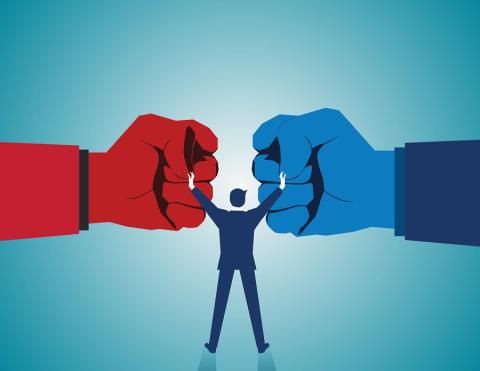For someone who ardently believed in witches and sea monsters, the puritan firebrand Cotton Mather was a surprising advocate for advanced medical science.
When some sailors brought smallpox to Boston in 1721, Mather forcefully promoted a new and dubious-sounding preventative, called “inoculation.”
He had first heard about the procedure from one of his African slaves.
The process involved smearing puss from the corpuscles of infected people into wounds deliberately cut into healthy people. Understandably, lots of 18th Century Bostonians thought this idea was nuts.
Why would anyone deliberately contract a deadly disease that everyone desperately wished to avoid?
For his trouble, Cotton Mather had a bomb thrown through one of his windows by a fellow citizen who thought the reverend was off his rocker.
But of course Mather was right. Inoculations gave people a milder form of the disease, immunized them against future exposure, and probably saved many lives in 18th Century Boston.

Later, in England, cowpox were used for a similar procedure, inciting a popular hysteria, or fear of an early sort of “mad cow disease” (see the image above).
Some citizens today, who rightly detest extreme political polarization, refuse to consider that organizing into teams on the right and left might inoculate us against extreme partisanship.
“We hate the narrow-minded left and right! We need to eradicate partisanship, not embrace it!” They exclaim.
But that’s exactly what Cotton Mather’s opponents said about smallpox.
If you put equal numbers of progressives and conservatives in a room and ask them to work together, they will depolarize. Group-think bubbles pop, critical thinking becomes sharper, trust builds, communities and friendships form, and the best solutions will emerge.
If you keep progressives and conservatives isolated in their own communities and reading information that only confirms their biases and vilifies “the other side," we will keep getting more of the same: paralyzed government, policy failures, selective perceptions of corruption, and civil decay.
These conclusions are nearly indisputable.
Left-to-right deliberation seldom takes place in Washington anymore because compromise is not in the interest of career politicians, who personally benefit from the polarization and manufactured political hatred.
But true left-to-right cooperation can potentially happen outside of government, because we are still a nation full of patriotic and civic-minded citizens. Most people, even those with strong ideological views, dislike what is happening in our politics, but don’t know how to stop it.
Impassioned calls to vote independent or to form a centrist party are useless. The vast machinery of modern media, combined with human nature, have Americans too powerfully polarized for this kind of appeal to be effective.
Pollsters tell us that there are very few real centrists or independents. The vast majority of people break right or left, which is even evident in the comment sections of websites dedicated to independent-minded voters and centrists.
Any organization that claims to be nonpartisan will be examined closely by all sides and will usually be found untrustworthy by one side or the other. And for good reason.
The process for creating reform solutions among existing groups takes place in backrooms, partisan rhetoric is easily spotted, and diversity of political perspectives is limited to fig-leaf tokenism.
There is only one way to break the partisan logjam. Balanced and credible teams of progressives and conservatives must sit down and negotiate solutions, with the understanding that every solution must have majority support on each side.
Pick up both ends of a net and you capture everything in between.
It will be very hard work, but it must be done.
Depolarize to reform, and reform to depolarize.
Independents and centrists should be part of the process too. While they can’t be permitted to tip the balance one way or the other (and leave the left or the right feeling cheated), they are the potential mediators, which is a very important role. They are the glue that can help hold it all together.
Many interesting reform ideas are blowing in the wind: various clean elections proposals, term limits, gerrymandering reform, schemes that give voters more choices on ballots, proportional representation, etc. It’s all just talk until we organize ourselves.
And it must be done correctly.
Our political system will begin to get fixed on the day that reform-minded leaders and financiers outside of the system agree to form a team, balanced between progressives and conservatives, dedicated to solving the political dysfunction.
We must urge them to unite for the good of the country and all of its people.
And we, at the local level, can form up in left-to-right teams everywhere.
The process will serve as the depolarization inoculation, the elixir necessary to restore the political health of the United States.
Photo Credit: MAGNIFIER / shutterstock.com
